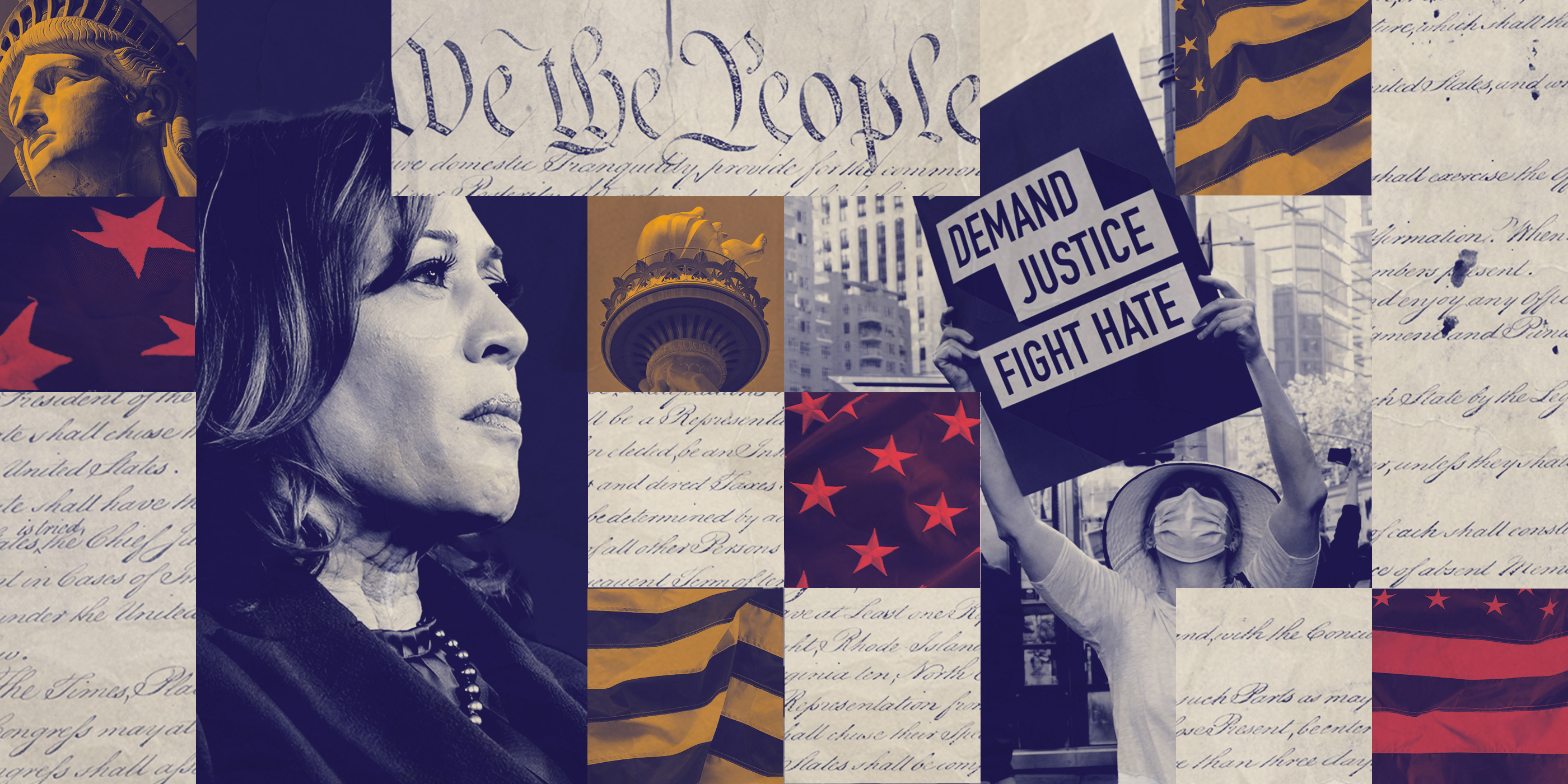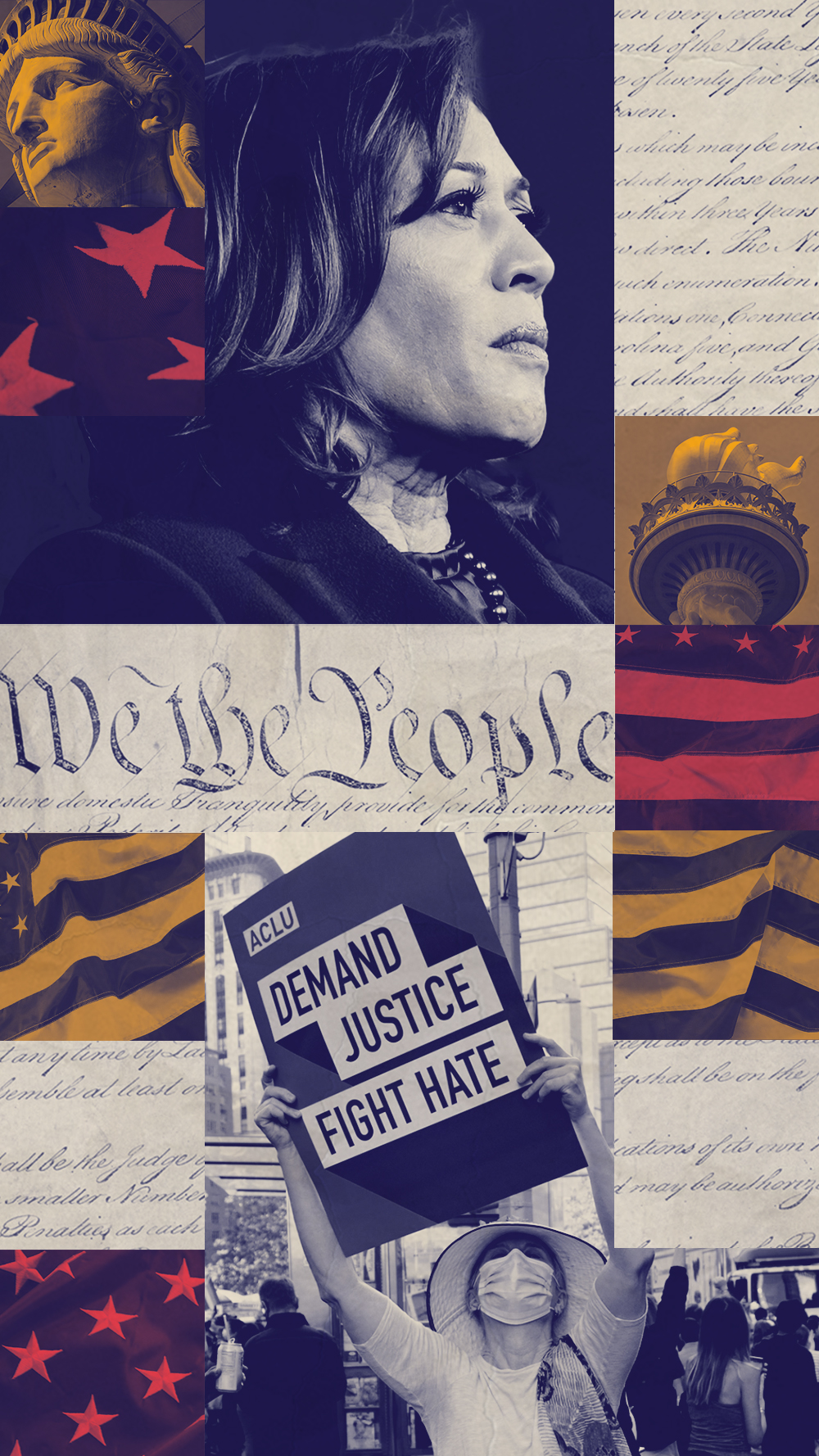What Kamala Harris Must Do to End Abuse in the Criminal Legal System


If elected president, Vice President Kamala Harris would bring extensive experience to the role from her work in the criminal legal system as district attorney, attorney general, senator and vice president. In these roles, her commitment to reforming the criminal legal system has been mixed. In some areas she has taken positions that have embraced reform, while in other areas she has taken positions that were contrary to reform — including instances where she missed the opportunity to end practices that helped drive mass incarceration.
The ACLU urges Harris to follow the lead of her running mate, Tim Walz, who has been a pioneer for criminal legal system reform in his home state of Minnesota.
Learn more in our breakdown.
Harris on the Criminal Legal System
The Facts: A Harris administration has the opportunity to make the criminal legal system more just and humane for all by renouncing failed policies that drove mass incarceration and racial disparities.
Importantly, in 2022, President Joe Biden issued an executive order on policing that changed the use of force standard for federal law enforcement, restricted the distribution of military equipment to local law enforcement, restricted the use of deadly chokeholds and carotid restraints, and created a national police misconduct registry. In the absence of congressional action, a potential Harris administration should continue the important work of implementing Biden’s policing executive order.
A Harris administration should also expand efforts to end federal mandatory sentencing minimums, which require federal judges to impose a required sentence — sometimes as much as five years, 10 years, or 20 years, or even a mandatory life in prison sentence — regardless of the case's specific facts or the circumstances of the person sentenced. A Harris administration should appoint an attorney general committed to ending this harsh practice and implementing other critical reforms that would change the system for the better.
The Harris administration can also push for passage legislative proposals such as the Justice Safety Valve Act, which Harris co-sponsored in the past. The legislation would give federal judges the discretion to sentence below the mandatory minimum sentence. The Harris administration could also push for passage of the EQUAL Act, which the ACLU strongly supports. This bipartisan bill would end the sentencing disparities between crack and powder cocaine that has resulted in racially disproportionate arrests, prosecutions, and federal imprisonment of Black and Brown people. Lastly, in 2019, Harris introduced the Marijuana Opportunity Reinvestment and Expungement (MORE) Act of 2019. The legislation would have decriminalized marijuana at the federal level and made the de-scheduling of marijuana retroactive. The ACLU supports the aims of the MORE Act and allows states to undo the harms of the war on drugs.
Why It Matters: Right now, the U.S. criminal legal systems hold more than 1.9 million people in prisons, detention centers, jails and other carceral systems. Racial discrimination within these systems mean that police encounters disproportionately impact Black and Brown people, and can escalate into . Currently, the burdens of petty drug-related charges, steep criminal fines or fees and unfair sentencing is also predominantly borne by Black and Brown communities, fueling a vicious cycle of poverty and criminalization.

Harris on the Criminal Legal System
The ACLU will push the Harris administration to expand progressive reform efforts and challenge draconian approaches to criminal legal policy. ...
Source: American Civil Liberties Union
At the ACLU, we believe everyone deserves dignity, fairness, and an opportunity to thrive. That includes people suspected, accused, or convicted of a crime. We seek to limit the harm and reach of the criminal legal system and transform our approach to safety to a system focused on prevention, not punishment. But we can’t do it alone. The executive branch has a vital role to play in realizing this vision.
How We Got Here: Harris brings extensive experience working in the criminal legal system to the White House. As a senator, Harris co-wrote and was one of the lead sponsors of the Justice in Policing Act of 2020, the most significant police reform bill to gain traction in the U.S. Senate after the murder of George Floyd in 2020. In response to the ACLU’s federal advocacy and other efforts, the most recent introduction of the George Floyd Justice in Policing Act in the Senate included grants for mental health crisis response programs and unarmed civilian government departments to enforce traffic violations. Harris has continued to be a proponent of police reform and accountability in her current role, recently applauding the development of a national non-public police misconduct registry for hiring federal law enforcement, and calling for the passage of the Justice in Policing Act.
Additionally, in the wake of the Trump administration’s execution spree, which killed 13 people, the Biden-Harris administration ordered, through Attorney General Merrick Garland, a halt to any future federal executions and a review of the federal execution process. Over the course of her career, Harris has fluctuated on the death penalty. If elected, the ACLU will call on Harris to suspend federal executions, approve broad grants of clemency to those on federal death row, and work for the abolition of the federal death penalty.
Our Roadmap: The ACLU will push the Harris administration to expand progressive reform efforts and challenge draconian approaches to criminal legal policy.
The ACLU will demand that Congress enact key legislation to ensure a fair and just criminal legal system, some of which were championed by Harris when she was in the U.S. Senate. This includes an improved George Floyd Justice in Policing Act to ensure accountability for police misconduct; marijuana reform to begin to address the harmful impact of the war on drugs; the Driving for Opportunity Act to reduce police interaction and the commensurate risk of harm; the Mental Health Justice Act to provide non-law- enforcement responses to mental health crises; the EQUAL Act to remove sentencing disparities between crack and powder cocaine; and the End Solitary Confinement Act to limit solitary confinement in federal facilities.
Additionally, the ACLU will continue our advocacy for legislation to repeal the federal death penalty, end mandatory minimum sentences, abolish the doctrine of qualified immunity, and stop the 1033 transfer of military weapons program. We will push a potential Harris administration to end extreme sentencing practices that fuel mass incarceration and abolish the death penalty once and for all. We will urge the administration to continue and fully implement the Biden administration’s charging policies that equalize sentencing outcomes for crack and cocaine offenses and that minimize the application of mandatory minimums.
The ACLU is hopeful that Harris will create an administration that is responsive to calls for a continued suspension of federal executions, broad grants of clemency to those on federal death row, and abolition of the federal death penalty. The ACLU will also continue our critical litigation that puts the death penalty “on trial” in the states, invalidating the death penalty based on its racist administration, including in the selection of juries.
What Our Experts Say: “I served as a public defender during the same period in our country's history that Vice President Harris worked as a prosecutor, and I know she witnessed, first hand, systemic injustices in our criminal legal system that need to be addressed immediately. We hope that if elected, Harris will use this insight to bring about transformative changes, including protecting people from police abuse, ending extreme and unjust sentencing, addressing the inhumane conditions in jails and prisons, and abolishing the federal death penalty — moving the country toward ending this inhumane practice once and for all.” — Yasmin Cader, deputy legal director and director of the ACLU’s Trone Center for Justice and Equality
“The ACLU will demand that Harris recommit to the legislative agenda that she championed as a senator. But Harris cannot wait on Congress to act: She must use her executive authority to end extreme sentencing, halt federal executions, and vastly expand the number of people granted clemency. The ACLU will continue to fight for a criminal legal system that is humane and just.” — Cynthia W. Roseberry, ACLU director of policy and government affairs
What You Can Do Today: Unchecked, unaccountable policing harms us all. Yet police continue to experience broad immunity, job security even with a pattern of misconduct, and a steady supply of war equipment directly from the Pentagon. The George Floyd Justice in Policing Act addresses these issues by helping to end racial profiling, to create real accountability for police, and to rein in police violence. .


